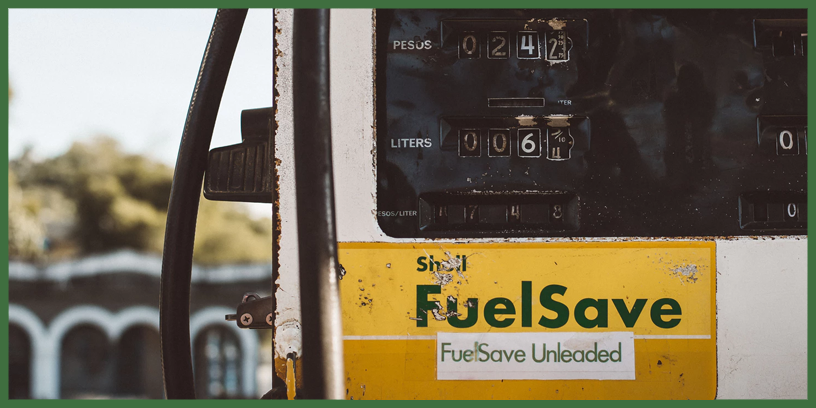Fuel cost is an important factor for any kind of vehicle based business, how could we save some of it via fuel management practices? As we mentioned in our previous post – Challenges and Solutions of Fleet Management – the fleet is a serious cost to an organization and in the same time, fleet managers are expected to keep the costs down, which is a complex task. But fortunately, you can use technology as an advantage. It is a fact that choosing a GPS tracking system over a traditional dispatcher process will increase productivity and decrease costs.
Vehicle route planning
You probably know about the importance of vehicle route planning and how it is related to financial pressures, if you read the article we mentioned above. Service or delivery drivers usually make several stops a day. We know there are couriers with twenty, or thirty addresses a day. Obviously, it would be an extreme amount of time and fuel wasted, if anyone tried to manage it without an order of destinations. And if planning the route is step one, then optimizing it is step two. Or an advanced step, if you like. Optimizing the route helps drivers to avoid traffic jams or reduce idle time. With the help of a GPS tracking system, fleet dispatchers can monitor vehicles in real-time and communicate with the drivers in order to keep the route optimized. It is a team effort.
Monitor speed
Speeding can be dangerous, and it burns extra fuel. It adds risks and expenses to fleet operations. Without enough care, you can easily get a speeding ticket. But now we are talking about the fuel part only and how to reduce fuel consumption. Our EverTrack app makes employees more accountable and encourages them to drive with care. If your drivers know their work is monitored, including speed and gas mileage, they tend to improve their behaviour, which will save fuel and reduce unsafe driving.
Here is a quick example. Let us assume your employee is driving a loaded truck, the destination is approximately 60 kilometres away, he has got more than 2 hours left, but he is driving 90 km / h or more. There is no reason to drive in such a hurry, the only effect is burning extra fuel. With a GPS tracking system, you can monitor speed and easily give a call to your employee and ask him to slow down.

Minimize engine idle time
At first glance, idling might not sound that serious in regards of fuel management. Of course, your drivers might leave the engines on more than they should to feel comfortable. To keep it warm in the winter, or just because it seems quicker to get out, make the delivery, get back, without stopping the engine. But idling highly affects not only the fuel costs, but the life of the vehicle and greenhouse gas emissions too. We all know that green fleet management is playing a more and more important role nowadays. Lower CO2 vehicles mean lower taxes. According to European classification, a EURO 6 vehicle comes with lower costs than a EURO 4. But let’s stick with the original idea, how to reduce fuel costs. With a GPS tracking system, fleet managers can monitor their vehicles and receive reports of when the drivers turn the engine on and off, or when the vehicle is moving. It provides accurate idle times.
Keep an eye on the records
It is crucial to be aware how the vehicles of the fleet are being used and to monitor fuel purchasing. Off-hours vehicle use comes with extra fuel costs and increases wear and tear. Let it be an unauthorized side job or using the company vehicle for personal reasons. If you are using a tracking system, you always know when and where the assets have been. Therefore, employees are accountable. You can manage fuel expenses, if you keep track of the vehicles, especially of fuel purchases. But forget about paper and pen, do it with the help of GPS fleet tracking solutions. It is proved to be more effective.
I would not number this last paragraph a full value point 5, but here at the end I had better mention proactive vehicle maintenance as well. Prevention is better than cure, as they say. How true that is. You can provide more reliable services, if a truck will surely not be standing at the edge of the road for hours out of some malfunction. And above all, well maintained engines operate more efficiently, therefore vehicles get their best gas mileage. The fleet remains a serious cost to an organization and fuel price volatility is difficult to forecast.
How do you do your Fuel Management? Is there anything that would help with it?
Please share it in the comments!
You don’t have an account yet?
Visit CorvusGPS.com and start your free trial.
- Get Started! – A Tutorial for Fleet Managers - January 17, 2021
- Get Started! – A Tutorial for Invited Users - January 17, 2021
- Unveiling the secret – Coloured pushpins - January 21, 2020






Leave a Reply
You must be logged in to post a comment.